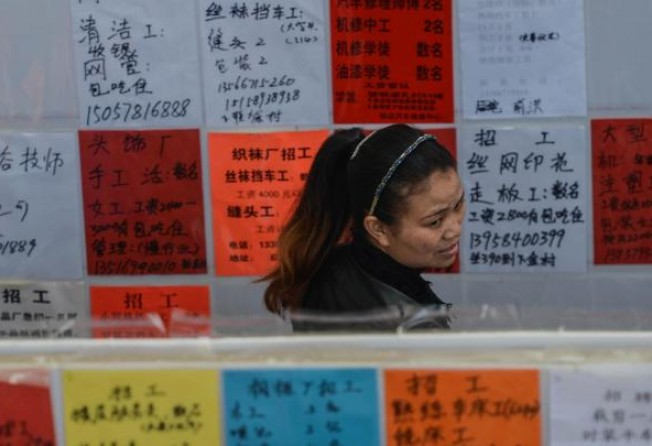Activists lament workplace discrimination against women in China
Female graduates say employers favour male applicants or impose discriminatory conditions

Zhu Xixi, an economics graduate from Wuhan, Hubei, had to promise not to get married for five years when she started work at a local bank in July.
"My supervisors kept telling me how dedicated many veteran female colleagues were at work, delaying starting a family or even a relationship," Zhu said, still bitter about the pressure she was placed under.
"I had no choice but to make such a promise and to lie about having a boyfriend at the time because I wanted the job."
Zhu said gender inequality in the job market had haunted her since she began looking for a job early last year. Before accepting the bank job, she missed out on a job as a student counsellor at a Wuhan university, later learning that the job had been reserved for male applicants.
Zheng Churan, a women's rights activist in Guangzhou, said many female graduates had complained to her about the many application letters they sent out and the few responses they received, while many less-qualified male classmates easily found jobs.
She said the lack of enforcement of gender equality regulations was largely to blame for widespread discrimination on the mainland.
Zheng, a fresh graduate with a degree in sociology, and seven other mainland university graduates launched an anti-discrimination campaign in December, reporting 267 randomly selected employers to their local labour and industry and commerce authorities after receiving complaints about discriminatory recruitment advertisements.
She said some advertisements, even for physically undemanding jobs like business or human resources managers, explicitly told women not to apply.
Others said women were excluded from consideration to safeguard their well-being because the jobs involved overtime and regular business trips.
Zheng said campaign organisers had received only a few positive replies from local law enforcement departments and most of their complaints had fallen on deaf ears. Only one employer had been fined - and then only 10,000 yuan (HK$12,320).
"A Nanjing industry and commerce department official even responded to one of our complaints by addressing me like a little girl and telling me not to make a fuss about it because I hadn't applied for that specific job," Zheng said.
She said another stumbling block was the lack of public awareness about the issue and the difficulty of gathering good evidence.
Zhu said she was never taught about gender discrimination, let alone collecting evidence of it. She was worried that discrimination in the work place was beginning to spill over into other areas, with universities likely to use the lack of jobs for female students in certain areas as an excuse to exclude women from related fields of study.
Renmin University and Shanghai International Studies University began to set higher admission scores for female applicants last year to address perceptions of a gender imbalance in certain faculties, despite opposition from women's groups.
The minimum admission scores from the national college entrance exam for female students in some science courses at Shanghai International Studies University are 60 points higher than the scores for males.
Lyn Liang, a fourth-year postgraduate student at a Guangzhou teacher training college, said it was much harder for female applicants like her to find teaching jobs because of a preference for male applicants.
Liang said one school principal had once complained to her during a job interview that his school was understaffed because female teachers were lining up to have babies.
The job went to a male from another college.
"Unless you're much more qualified, you're more likely to lose out to a male competitor," Liang said. "And even worse, you can't do anything about it."
Wen Yuxuan , who graduated from South China Normal University in Guangzhou in 2011, said she tape-recorded a phone conversation with a Guangzhou company's human resources manager in October about the progress of her application for a sales job. She was told she had been disqualified because she was a woman.
She used the recording when lodging a complaint with the local labour department and it ruled in her favour, demanding a written apology from the company as well as compensation.
"Sadly many of my peers don't know how to deal with such situations and quietly swallow their bitterness," she said.